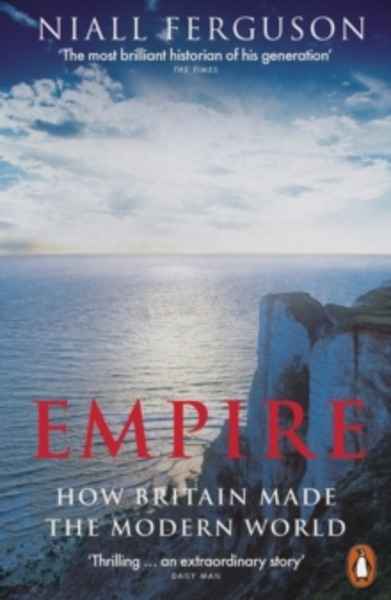Empire
How Britain Made the Modern World

Editorial Penguin UK
Fecha de edición junio 2018 · Edición nº 1
Idioma inglés
EAN 9780141987910
448 páginas
Libro
encuadernado en tapa blanda
Resumen del libro
Niall Ferguson's acclaimed bestseller on the highs and lows of Britain's empireOnce vast swathes of the globe were coloured imperial red and Britannia ruled not just the waves, but the prairies of America, the plains of Asia, the jungles of Africa and the deserts of Arabia. Just how did a small, rainy island in the North Atlantic achieve all this? And why did the empire on which the sun literally never set finally decline and fall? Niall Ferguson's acclaimed Empire brilliantly unfolds the imperial story in all its splendours and its miseries, showing how a gang of buccaneers and gold-diggers planted the seed of the biggest empire in all history - and set the world on the road to modernity. 'The most brilliant British historian of his generation ...
Ferguson examines the roles of "pirates, planters, missionaries, mandarins, bankers and bankrupts" in the creation of history's largest empire ... he writes with splendid panache ... and a seemingly effortless, debonair wit' Andrew Roberts 'Dazzling ...
wonderfully readable' New York Review of Books'A remarkably readable precis of the whole British imperial story - triumphs, deceits, decencies, kindnesses, cruelties and all' Jan Morris 'Empire is a pleasure to read and brims with insights and intelligence' Sunday Times
Biografía del autor
P B Niall Ferguson /B ocupa la cátedra Lawrence A Tisch de Historia de la Universidad de Harvard y la cátedra Wiliam Ziegler en la Harvard Business School. Asimismo es profesor del Jesus College, de la Universidad de Oxford, y de la Hoover Institution, de la Universidad de Stanford. Considerado el historiador británico más brillante de la actualidad por el I Times /I y una de las cien personas más influyentes del mundo por la revista I Time /I , entre sus obras destacan I Coloso /I (Debate, 2005), I El Imperio Británico /I (Debate, 2005), I La guerra del mundo /I (Debate, 2007), I El triunfo del dinero /I (Debate, 2010) y I Civilización /I (Debate, 2012).<br>








